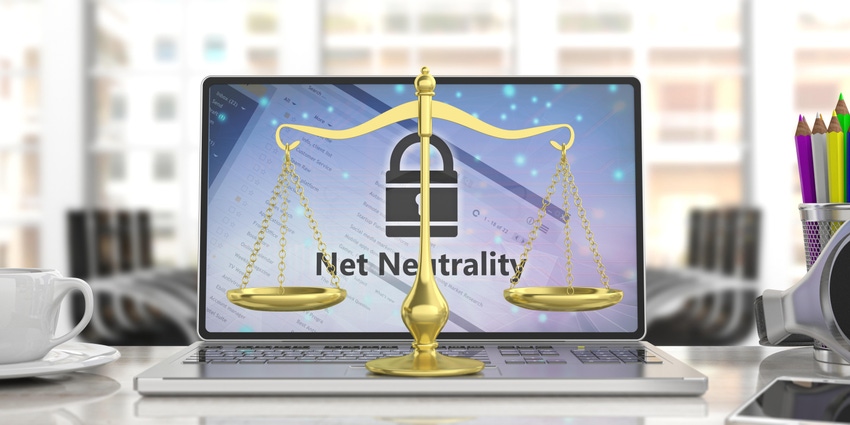Cable pitches suggestions as FCC plows ahead on net neutrality rules
With the FCC's new net neutrality rules expected to sail through a vote, cable orgs argue that the rules should allow for 'reasonable network management,' avoid a ban on data caps and refrain from giving a free pass to 5G network slicing.

US cable operators clearly do not want the FCC to plow ahead with a fresh set of network neutrality rules that would define broadband as a more heavily regulated "Title II" telecommunications service. But with an expectation that the proposed rules will sail through a vote, the industry has banded together to advise the FCC on what it should – and should not – tuck into the rulemaking.
Cable's broad view is that the FCC's move to restore the rules under a Title II classification is unlawful and "misguided," holding that it's up to Congress, not the Commission, to decide such "major policy questions," the NCTA – The Internet & Television Association and eight state cable organizations argued in reply comments (PDF) to the Commission. They also believe that the proposed rules will not survive a judicial review.
Further, they view new rules as unnecessary, holding that ISPs lack the incentive to degrade their services in today's competitive marketplace. The cable industry also fears that treating ISPs as common carriers under Title II would "damage the well-functioning broadband marketplace" amid the ramp up of the Broadband Equity Access and Deployment (BEAD) program.
The proposed rules "would stifle innovation and investment by ISPs and threaten to deter participation in the BEAD program and similar initiatives," the group argued.
Net neutrality do's and don'ts
But should the Democrat-controlled FCC approve the new rules, as many expect to happen later this year, the cable group outlined some recommended do's and don'ts.
The FCC should retain its allowance for "reasonable network management" as an exception to the no blocking/no throttling aspect of the rules, the group advised. The FCC contends that its proposed no blocking, throttling and unreasonable discrimination protections "will prevent broadband service providers from deliberately interfering with consumers' access to lawful content, applications, and services."
The cable group also said the Commission should not ban usage-based billing (i.e., data caps) and "zero-rating" policies that allow some Internet-delivered services to not count against a customer's monthly data usage.
Also on their list: ensuring that Title II provisions are not used by the FCC to regulate rates, mandate unbundling and pursue other "ill-fitting provisions of Title II."
Concerns about 5G network slicing
With a nod toward the ongoing convergence of wireline and wireless networks and services, the cable group also called on the FCC to apply the new rules equally across different broadband technologies, including fixed wireline, fixed wireless and mobile wireless, and to avoid making "unwarranted" distinctions between them.
That also goes for "carve-outs" such as 5G network slicing, a method that sets aside network bandwidth for specialized services that might require higher speeds or lower latencies. Cable is concerned that network slicing, which is poised to drive new 5G use cases and revenue, could be used to sidestep the FCC's rules.
"Network slicing should not be used to provision a BIAS [broadband Internet access service] offering or to transmit services, applications, or content consumers access utilizing a BIAS service in a manner that circumvents the proposed Open Internet rules," NCTA and the state cable organizations argued.
Other operators and suppliers share concerns about how the FCC will apply its new rules to network slicing, but for different reasons. They want clearer guidance and fear that a heavy-handed approach could hinder the development and deployment of the technology.
T-Mobile, for example, argued in its reply comments this week that "[n]etwork slicing is a prime example of a cutting-edge technology that could be negatively affected by regulatory uncertainty."
Nokia shares T-Mobile's concerns, arguing that unclear guidance on slicing would "hang like a regulatory sword of Damocles over the 5G market in the United States."
About the Author(s)
You May Also Like




.jpg?width=300&auto=webp&quality=80&disable=upscale)







